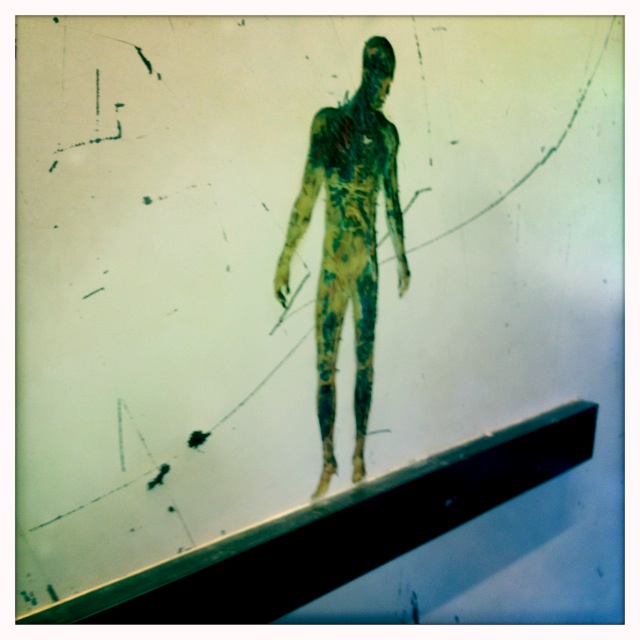
If the doors of perception were cleansed every thing would appear to man as it is, infinite. For man has closed himself up, till he sees all things thro' narrow chinks of his cavern.
Thus spake William Blake in his "The Marriage of Heaven and Hell". Amen? Aiko Aiko? Let us discuss.
Though treading the same poetic ground as John Milton's "Paradise Lost" and Dante Alighieri's "Inferno," William Blake came away with a very different picture of these other worldly forces. Blake illustrates his Heaven and Hell, not as polarized moral opposites or distant physical realms, but rather as dynamic qualities evident in all human beings. He also resists painting heaven as "good" and hell as "bad." In fact, he gives hell a pretty appealing rap. Yet, in the end, one's left with the sense that the challenge Blake gifts us isn't about choosing between heaven and hell, but rather breaking down the walls between them.
If one thinks about it, there is a heaven and hell inside each of us. Life most truly is (as Blake posits) a constant tug of logic and stability against unrestrained creative energy and chaos. I'd even venture to say that it is most richly and meaningfully all that, when we're really paying attention (which is not nearly enough, hence the whole point about those revelatory "doors of perception").
People tend to talk a lot about "balance" these days, as in work-life balance. But scales segregate and don't measure for harmony. Wouldn't it be better to let more passion enter the daily order of all that we do as thoughtful beings? Wouldn't a more unifying softening of the lines between task and pleasure yield greater collective good?
Well, it's an age-old debate, but that doesn't mean that it's lost its relevance to us. It's a timeless quandry. Dionysius vs. Apollo. Art vs. Science. Wild Abandon vs. Stabilizing Reason. Love and Fear. Blake places these gods in each human house and invites us to explore our own accomodations. Many have done so. Too many to list. Plus, I don't want to get distracted by Jim Morrison in leather pants, so I'm going to cut straight to Aldous Huxley, who famously titled a memoir of a mescaline trip "The Doors of Perception."
It would certainly be fitting to site this iconic work as inspiration for a journey to brave the new world of collective consciousness-raising and boundary-breeching that wills itself into being each year in Nevada's Black Rock desert. But it's in fact a different Aldous Huxley novel that's finally pushed me to say "yes" to Burning Man after years of shoulds and oughts and maybes.
I happened to be reading "After Many a Summer Dies the Swan" when an e-mail offering me two miracle tickets popped up in my inbox. The graciousness of this friend's gift, the prospect of accepting an offer to camp with the fantastic crew of the Disco Shuttle, and my pent up curiosity, all conspired to nudge me closer to the edge, but as I reread Huxley's words, they stood out from the page like a pointed finger. That last push over the cliff.
"One doesn't know the full meaning of the word 'Parthenon' until one has actually seen the thing." Huxley's character Mr. Propter says, adding: "You've read descriptions of timeless good... Dozens of them. In all the literature and philosophy and religion. You've read them; but you've never bought your ticket for Athens."
So there you have it. I suppose the time has simply come for me to stop talking, reading about, wondering about Burning Man. It's time to strap on the goggles, get on the bus, and see if I can't widen the chinks and glimpse infinity. I have as much trepidation as excitement, but I think that's the point. It will be good for me to feel uncomfortable, imbalanced, and untethered out there in the desert surrounded by raw elements, unstripped emotions, colossal nature, and monumental art. Beauty lives at the edges. Beauty lives at the center. Leave no part unvisited. Use the ticket you've been given. Pray that the road is long.
Not the Laestrygones, not the Cyclopes,nor yet the fierce Poseidon, shall you meet,unless you carry them within your soul, --unless your soul should raise them to confront you.
- from Ithica by C.P. Cavafy

